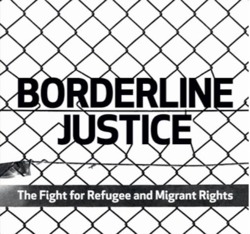- BY Colin Yeo

Refugee “cause lawyering” in the UK
THANKS FOR READING
Older content is locked

A great deal of time and effort goes into producing the information on Free Movement, become a member of Free Movement to get unlimited access to all articles, and much, much more
TAKE FREE MOVEMENT FURTHER
By becoming a member of Free Movement, you not only support the hard-work that goes into maintaining the website, but get access to premium features;
- Single login for personal use
- FREE downloads of Free Movement ebooks
- Access to all Free Movement blog content
- Access to all our online training materials
- Access to our busy forums
- Downloadable CPD certificates
 Professor Stephen Meili of the University of Minnesota Law School has written a very interesting article entitled U.K. Refugee Lawyers: Pushing the Boundaries of Domestic Court Acceptance of International Human Rights Law for the Boston College Law Review 54 B.C.L. Rev. 1123 (2013). It is fascinating for we UK refugee lawyers to get an external perspective on our work.
Professor Stephen Meili of the University of Minnesota Law School has written a very interesting article entitled U.K. Refugee Lawyers: Pushing the Boundaries of Domestic Court Acceptance of International Human Rights Law for the Boston College Law Review 54 B.C.L. Rev. 1123 (2013). It is fascinating for we UK refugee lawyers to get an external perspective on our work.
The article “analyzes how refugee lawyers in the United Kingdom navigate the tension between state power and international norms”, examining through the prism of UK refugee legal developments the tension between interference with sovereign power by international treaties and the attempts made by sovereign states to reassert that power. The outsider’s perspective is that this tension has been particularly acute in the UK following the Blair Government’s attempts to severely limit the number of persons seeking, and ultimately being granted, asylum.
Meili writes that the UK is a particularly interesting example to study because we effectively incorporated the European Convention on Human Rights in 1998, we signed up to the EU Qualification Directive on refugee status and because of the Supreme Court’s reliance on the UN Convention on the Rights of the Child in ZH (Tanzania). These are all examples of the ceding of state power at the same time the same state was publicly seeking to reassert power.
The article suggests that refugee ’cause lawyers’, committed to effecting change through law, have significantly expanded the role of international human rights norms in UK asylum adjudications over the past decade. ‘Cause lawyers’ are said to be those:
who consciously seek social or political goals while simultaneously pursuing the interests of their individual clients.
 That is a pretty accurate description of pretty much every UK refugee law specialist I know. It also encapsulates the philosophy incubated in a generation of refugee lawyers by a combination of a cadre of committed immigration lawyers like Fran Webber and David Burgess, the Refugee Legal Centre, the Refugee Legal Group and the Immigration Law Practitioners Association. Fran’s Borderline Justice tells the inside story of this struggle by lawyers and others and she stresses the importance of “bringing the community into the court room”.
That is a pretty accurate description of pretty much every UK refugee law specialist I know. It also encapsulates the philosophy incubated in a generation of refugee lawyers by a combination of a cadre of committed immigration lawyers like Fran Webber and David Burgess, the Refugee Legal Centre, the Refugee Legal Group and the Immigration Law Practitioners Association. Fran’s Borderline Justice tells the inside story of this struggle by lawyers and others and she stresses the importance of “bringing the community into the court room”.
With Fran retired from practice and the current generation less schooled in the importance of community campaigning, David tragically dead, RLC bankrupt and closed, the RLG reduced to a mere email list and only ILPA carrying the baton, it will be a struggle to keep that culture alive.
Meili’s conclusion is sobering, though, and should give pause to any self-congratulation for past glories:
In the final analysis, refugee lawyers in the United Kingdom are not resisting state power over migration as much as trying to redefine it; that is, they seek to modify the sources on which that power is based. In the globalization context, they endeavor to fill the power vacuum in the new global legal order by pressuring the state (through its courts) to not only broaden human rights-based protections for refugees but to make those protections part of domestic law. In this way, cause lawyers are proponents of expanded state power over migration, provided that power is based on international human rights norms.
In his review of Webber’s Borderline Justice, Nando Sigona points to the dangers of “court-centred activism for migrants’ rights” and has very kindly agreed to contribute a piece on that subject to this blog. We lawyers should all think long and hard about this issue. We tend to place ourselves at the centre of campaigns, but by doing so may do the long term cause more harm than good.
SHARE

